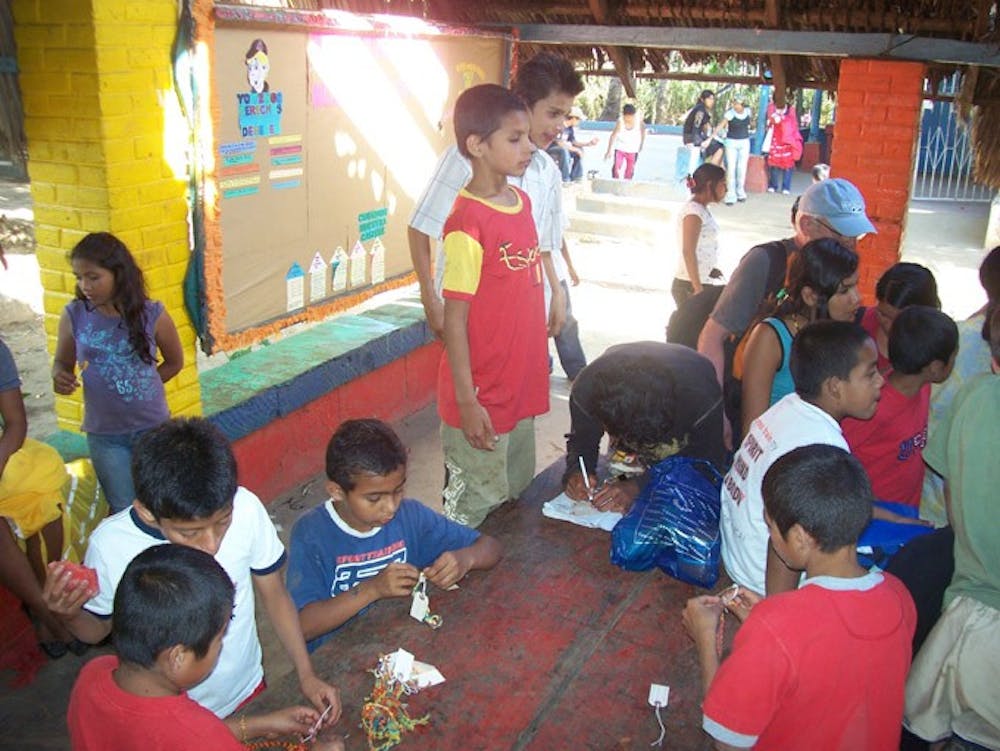Last December, Colin Crane went to Nicaragua with his family and came back with the beginnings of what would become a successful service group: the Pulsera Project.
The Pulsera Project is a program that buys handmade bracelets — or “pulseras” in Spanish — from children in Nicaragua and sells them in the United States. The profit is then donated back to programs in underdeveloped countries.
Crane, a junior in the School of Communication, and his family spent a week with the children of Los Quinchos, an orphanage in Nicaragua. They were the only visitors the kids had in a whole year.
“They were so poor, but they were so happy,” Crane said.
One skill all the kids were taught at a young age was how to make bracelets. Crane said the kids really had no outlet to sell their bracelets, so he and his family bought 200 to 300 bracelets from the kids for one dollar each. They brought the bracelets back to the United States and sold them for between four and five dollars each. They sold out in a week and the Pulsera Project was born.
Since its beginning, the Pulsera Project has sold 8,000 bracelets in South Carolina, Pennsylvania and D.C. So many bracelets are being sold that the project hired local Nicaraguan families to make more bracelets to sell. The Pulsera Project raised $2,000 from two days of sales at AU. The money raised goes to the Los Quinchos orphanage, or half goes to the orphanage and the other half goes to the cause of the group’s choice that is selling the bracelets. The money raised helps the orphanage in various ways.
“We ask them what they want,” Crane said. “They are happy with so little.”
Funds have purchased pillowcases, sheets and a couple weeks ago, a refrigerator. The project also purchased lumber to turn an old farm building into a library.
“Everything we take for granted, they’re fascinated with,” Crane said, referring to the digital cameras the Pulsera Project bought for the orphanage.
The Pulsera Project is currently pending non-profit status. Crane is trying to take baby steps with the project and keep it grassroots, he said.
“In six months, it’s gone from an idea to raising $8,000,” Crane said. “There is so much potential.”
Crane said the project’s current goal is to raise as much money as they can so the orphanage can get what it needs. In the future, he would like to help other orphanages besides Los Quinchos.
Rachel Hendrickson, a sophomore in the College of Arts and Sciences and Crane’s friend, is going on the project’s next trip to Nicaragua. She said it is a great grassroots idea, and related it to TOMS shoes, the company that gives a new pair of shoes to a needy child every time a customer buys a pair of shoes.
“If you have an idea to help people, you have to just go with it,” Hendrickson said. “This is the same thing.”
Crane said the best way to help is to spread the word about Pulsera.
“The best thing to do is tell all your friends and buy a bracelet. Buy one for your family, girlfriend, boyfriend, dog,” he said.
Sareen Hairabedian, a freshman in SOC, and Mariam Aziz, a freshman in the CAS, both bought the same bracelet on Friday as “friendship bracelets.” They said they bought the bracelets because they are good quality and go towards a good cause.
Alpha Phi Omega, AU’s community service fraternity, will be selling the bracelets in the Mary Graydon Center from Monday, Sept. 28, until Wednesday, Sept. 30.
You can reach this writer at news@theeagleonline.com.





